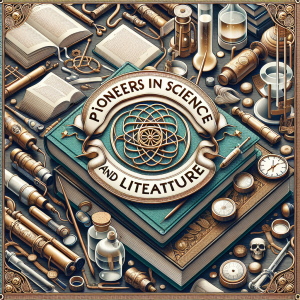Growing up in Denmark, I was surrounded by the rich and vibrant culture of Danish folk music. This centuries-old tradition has not only shaped the musical landscape of Denmark, but also serves as a window into the country’s history, traditions, and values. As I delve into the depths of Danish folk music, I invite you to join me on a journey through time and tradition that continues to captivate and inspire music lovers around the world.
The Roots of Danish Folk Music
Danish folk music has its roots in the ancient oral traditions of the people who inhabited the Danish countryside. These traditional tunes and melodies were passed down through generations, often accompanying social gatherings, work, and celebrations. The music reflected the daily lives, struggles, and triumphs of the Danish people, creating a deep and enduring connection to the country’s cultural heritage.
One of the most iconic instruments in Danish folk music is the hurdy-gurdy, a string instrument that produces sound by a hand-crank-turned, rosined wheel rubbing against the strings. This distinctive instrument has been a mainstay in Danish folk music for centuries, adding a unique and evocative sound to traditional melodies. Other instruments commonly used in Danish folk music include the violin, accordion, and various percussion instruments, all of which contribute to the rich tapestry of sound that defines the genre.
The Influence of Danish Folk Music
The influence of Danish folk music extends far beyond the borders of Denmark, impacting music genres and traditions around the world. In the 19th century, Danish folk music experienced a revival thanks to the work of composers such as Carl Nielsen, who incorporated traditional melodies and themes into their classical compositions. This fusion of folk and classical music not only elevated Danish folk music to a new level of recognition, but also cemented its influence on the broader musical landscape.
Today, Danish folk music continues to inspire contemporary musicians, who draw upon its timeless melodies and rhythms to create new and innovative compositions. This enduring influence serves as a testament to the enduring power and relevance of Danish folk music, bridging the gap between past and present with its timeless appeal.
Celebrating Danish Folk Music Today
Despite the passage of time, Danish folk music remains a vibrant and integral part of Denmark’s cultural identity. The annual Tønder Festival is a celebration of Danish folk music and attracts thousands of enthusiasts from around the world. This lively gathering is a testament to the enduring appeal of Danish folk music, bringing together musicians, dancers, and music lovers to revel in the rich tapestry of sounds and traditions that define the genre.
Visiting the picturesque town of Tønder during the festival is an experience like no other, as the streets come alive with the sounds of fiddles, accordions, and the unmistakable rhythms of Danish folk music. Revelers can partake in traditional Danish dances, sample local cuisine, and immerse themselves in the enchanting world of Danish folk music, creating lasting memories and forging new connections with fellow enthusiasts.
Preserving a Timeless Tradition
As a Dane, I am proud of the enduring legacy of Danish folk music and the impact it continues to have on our cultural heritage. Organizations such as the Danish Folk Music Association work tirelessly to preserve and promote traditional Danish folk music, ensuring that future generations will have the opportunity to experience the magic of this timeless tradition.
- Illuminating the significance of Danish folk music in Denmark’s cultural heritage
- Tracing the roots and evolution of Danish folk music through the years
- Examining the enduring influence of Danish folk music on contemporary music
- Celebrating the vibrant and dynamic Danish folk music community today
- Exploring the efforts to preserve and promote Danish folk music for future generations
As I reflect on the enduring magic of Danish folk music, I am reminded of its ability to transcend time and borders, captivating and inspiring music lovers around the world. The melodies and rhythms that have echoed through the Danish countryside for generations continue to resonate with people from all walks of life, offering a glimpse into the cultural treasure that is Danish folk music.
So, whether you find yourself toe-tapping to a lively fiddle tune or swaying to the haunting strains of a hurdy-gurdy, I encourage you to embrace the enchanting world of Danish folk music and experience the timeless magic for yourself.




